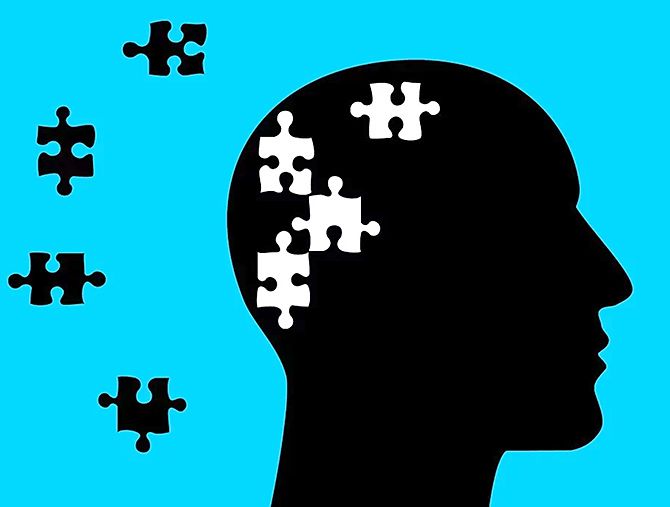The symptoms of Alzheimer’s appear very slowly but progress steadily, warns Dr Madhuri Behari.
 n
n
According to the World Health Organisation, dementia is a syndrome in which there is gradual deterioration in memory, thinking, behaviour and the ability to perform everyday activities.
Although dementia mainly affects older people, it is not a normal part of ageing. Around 50 million people have dementia, and there are nearly 10 million new cases reported every year.
In India approximately 4 million people have some form of dementia.
Alzheimer’s is categorised as a dementing illness associated with disturbance of speech, altered behaviour, inability to do coordinated, learned activities, disorientation and disturbance of judgement in addition to memory impairment. It is considered a disease of the elderly and the patients require a lot of care and attention.
Though treatment is available for symptomatic relief, there is no long-term solution for treating the cause or any specific ways to prevent the condition and the disease keeps on progressing. However, while on treatment, patients can lead a meaningful life till advanced stages of disease.
The family of an Alzheimer’s patient needs to understand the signs and symptoms of the disease to handle it carefully.
The more updated and informed the family is, the easier it is for them to deal with patients.
Early signs and symptoms
- The symptoms of Alzheimer’s appear very slowly but progress steadily.
- A few symptoms may start with memory loss and disturbance of recent activities such as forgetting what they have eaten or where they had gone the same morning or a day earlier, though very old memories of which school they went to, childhood days etc. are remembered well.
- The above symptoms will be followed gradually by no recall of words or forgetting correct pronunciation. Patients will also not comprehend what they have spoken or what others say.
- Due to complex changes occurring in the brain, some people may see or hear things. Hallucinations can involve hearing, seeing, smelling, or feeling things that are imaginary. The patient may also suffer from delusions or false beliefs that the person thinks are real. For example, the patient may think the family, or the nurse is out to harm or kill her/him. In extreme cases, paranoia may occur where a person may believe that well-wishers or family members are mean, lying, unfair, or 'out to get me.' This can lead to the person getting suspicious, afraid or jealous of people.
- Some patients may forget their way inside or outside house and will be easily lost.
- Patients may also forget how to wear clothes and don’t recognize their relatives as well.
- As the disease progresses, they may go to the kitchen thinking it’s the bathroom and may pass urine without being aware of the same.
- For most patients, time becomes still and they live in the past. They may treat their wives and daughters like their mothers.
- They will not be able to speak. They may keep food in the mouth, keep on rolling it without swallowing it.
- They may not be able to eat and keep on moving hand in the plate.
How to care for a person with Alzheimer’s:
Consult a doctor if an existing illness or medicine is causing hallucinations or delusions.
It is best not to argue with the person about what he or she sees or hears or trying to give explanations. Comfort the person if he or she is afraid or fearful.
Sometimes, distracting the person or changing the conversation may help. Going to another room or stepping out for a walk also helps.
Caregivers or family members can turn off the TV when violent or depressing, sad programs or movies are on. A patient with Alzheimer’s may think these events are happening in the house.
One must always ensure safety of the person and see to it that he/she can’t reach anything that could be used to hurt anyone or himself/herself.
A lot of people believe that Alzheimer’s affects only older people but due to some genetic factors it may occur in younger ages as well.
It is necessary to take your memory loss seriously which may gradually lead to the disease.
In simple terms, if you do not use your brain you may lose it gradually.
So, it is advisable to use the brain even if not working. Activities like playing intellectual games, brain teasers, Sudoku and other puzzles can help prevent brain decline.
It is also important for people retiring to continue playing some brain related games and activities.
You can learn a new language or indulge in some hobbies; basically keep yourself active and engaged.
Dr Madhuri Behari, head of department, neurology, Fortis Flt Lt Rajan Dhall Hospital, Vasant Kunj, Delhi. She can be contacted on ga@rediff-inc.com










